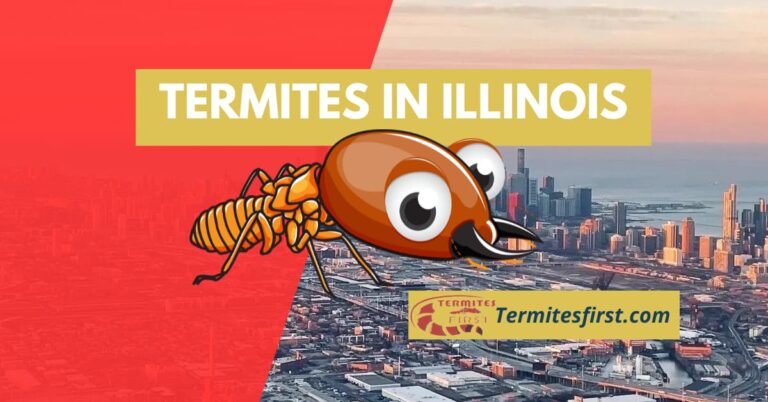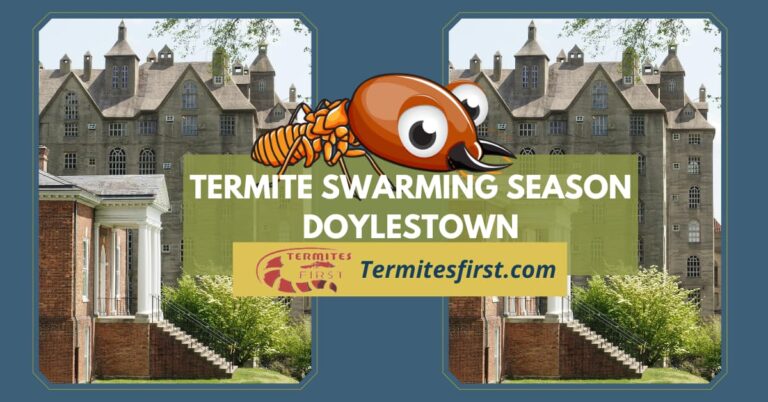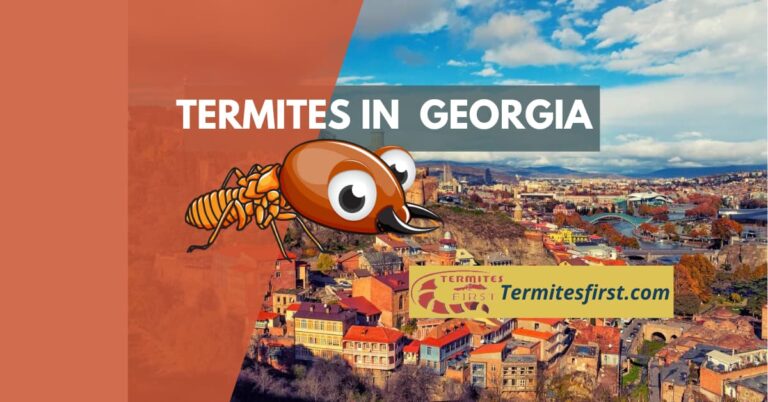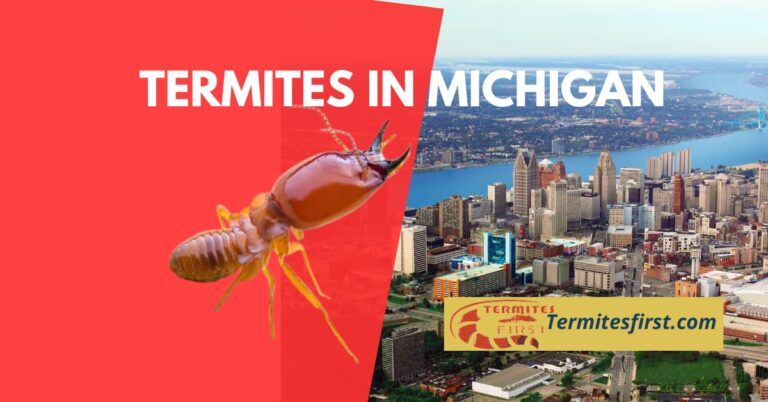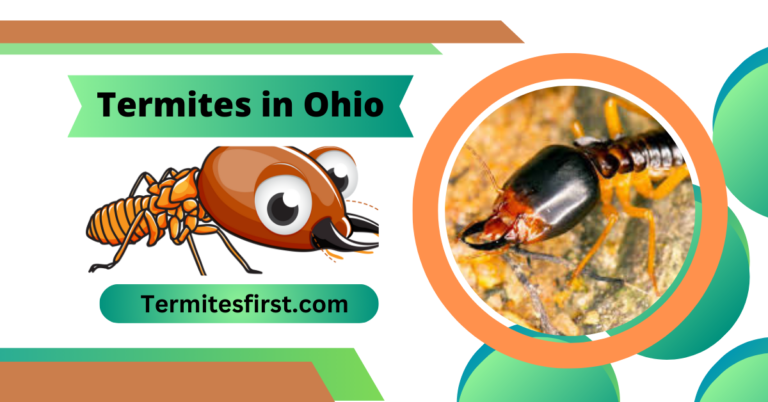My Termite Treatment Experience in Houston
Houston termite treatment provides a trusted defense to keep homes safe from these damaging bugs. Familiar with the local climate and soil conditions, I hone in on the most effective methods specifically suited to the area.
From chemical treatments to baiting systems, each solution promises safety and efficiency. Preventing infestations before they invade your home takes a proactive, detail-oriented approach and routine inspections.
This tactic protects your investment. It provides you with peace of mind, knowing your home is protected from the destructive nature of termites.
Top Insights:
- That’s why early detection of termite infestations is critical to preventing costly damage and repair costs. In reality, termite damage in the U.S. costs upwards of $5 billion annually. And homeowners would be spared the majority of the economic burden by an order of magnitude with early detection.
- Houston is home to three main species of termites: subterranean, drywood, and Formosan. Each has specific nesting habits and damage patterns, requiring tailored treatment approaches.
- Regular termite inspections are essential as they help identify early signs of termite activity, preserving property value and providing peace of mind to homeowners.
- Treatment options include chemical treatments, baiting systems, heat treatments, fumigation, and biological control. Using multiple treatment methods usually leads to the best outcome, and working with pest control professionals is strongly encouraged.
- Preventative measures including moisture control, sealing of access points, and ensuring a dry environment can help protect against termites. Vulnerabilities can be found when homeowners make regular maintenance a priority.
- Homeowners need to make sure they are getting service from licensed and certified termite service providers. Find the best termite control providers. Not all termite control providers are created equal.
What Are Termites
Termites are one of the most destructive pests, infamous for costing property owners billions in damages each year. These tiny, but powerful bugs munch through wood and other cellulose-based materials, weakening the structure of homes and buildings.
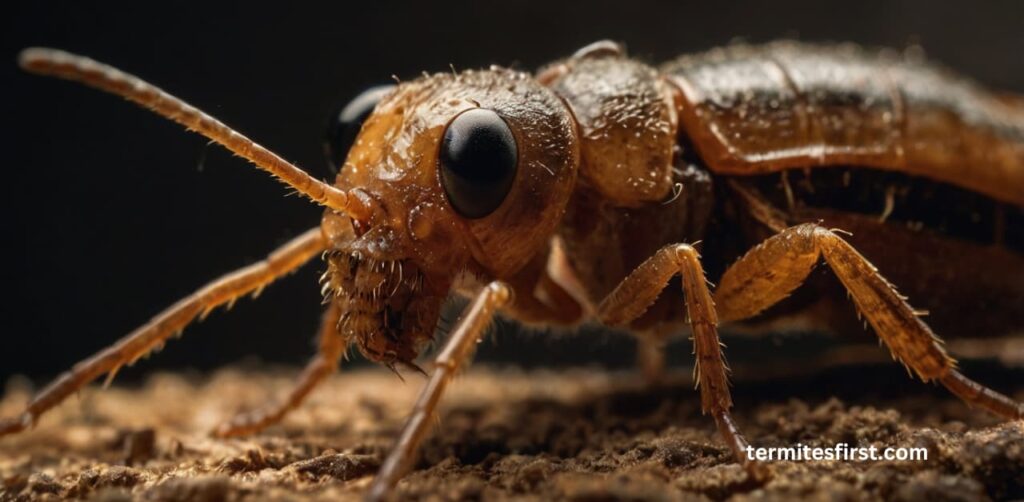
With an economic impact greater than $5 billion per year in the U.S., termite damage is a hazardous expense. The best way to avoid costly repairs from termite damage is by catching infestations early before they become a serious threat to your property.
To Houston homeowners, these three species are the most concerning of the termites—subterranean, drywood, and Formosan, contributing their specific attributes and difficulties.
Types of Termites in Houston
In Houston, subterranean termites are about the most common. They build their nests in the ground and require humidity to thrive. This reliance on wood makes them particularly damaging to buildings that contain concealed wooden elements.
These termites engineer intricate mud tubes to access their food sources. These tubes are many times the first obvious indication these wood-eating pests are present.
Drywood termites infest dry wood and do not need to be in contact with soil. They’re infamous for their talents at staying concealed inside wood structures, which makes finding them much harder.
Formosan termites, a more aggressive species, create supercolonies that can do millions of dollars of damage in less than a year. Termites have a bad reputation for their fast eating habits. They can eat through one foot of a 2×4 in only six months!
Even homes constructed entirely of brick or concrete are not safe, as these materials often have wooden components that are out of sight.
Termite Behavior and Habitats
Termites are insatiable in their search for food, working non-stop day and night. Their activity is driven by environmental factors like warmth and moisture. They typically swarm on warm days after rain and become drawn to heated structures in the winter months.
Spotting termite activity as soon as possible is vital, but some signs you might notice are the appearance of mud tubes and droppings. Termites are commonly mistaken for ants, but they are vastly different.
To distinguish them, note their straight antennae, uniform wing length, and non-segmented bodies. Knowing their behavior and habitats helps focus treatment efforts on a specific area.
Though termites mostly live in the ground, they create colonies underground, under food sources. So it’s key to understand that even post-treatment, termites may remain in walls for up to six to eight weeks.
Regardless of this, it is still possible to achieve 90-100% control, even after ten years on the short-term side. Understanding their habitats and behaviors can help you prevent them and treat them more effectively.
TOP Termite Treatment providers in Houston
- ABC Termite & Pest Control: Known for eco-friendly treatments and excellent customer service.
- Terminix: Offers comprehensive termite inspections and reliable treatment plans.
- Orkin: Provides advanced technology solutions and a strong warranty program.
- Pest Control Houston: Specializes in affordable termite control options with quick response times.
- Houston Termite Solutions: Focuses on local expertise and customized treatment plans.
- Truly Nolen: Features a unique four-season pest control approach to prevent infestations.
- Arrow Exterminators: Offers a wide range of services, including preventative measures and repairs.
Common Termite Treatment Methods
Houston termite treatments utilize a variety of tactics tailored to the unique needs of a termite infestation. The solution depends largely on the type and severity of your pest problem. Typically, a combination of methods, recommended by knowledgeable termite control experts, yields the best outcomes. Expert advice for homeowners is essential to customize the most effective approach to any given situation.
1. Chemical Treatments
Unsurprisingly, chemical treatments are the most common method of termite control, particularly with liquid chemicals that form a barrier. These treatments create a barrier in the dirt surrounding the home, stopping termites from getting inside. The first benefit is that they’re effective right away at killing termites.
However, they have serious concerns, including safety risks to humans and pets if not used properly. These chemicals require very exact application, and professional pest control services are highly advised to guarantee both effectiveness and safety. HomeTeam Pest Defense, for example, provides this with a one-year renewable warranty, indicating their confidence in the chemicals.
2. Bait Systems
Bait systems provide a more strategic option, deploying cellulose baits that termites can’t resist. These systems typically operate by luring termites to the bait, where they ingest or absorb the active poison ingredient and return it to their network. One of the most effective and popular termite treatment methods, the Sentricon system has been used at important locations such as the White House.
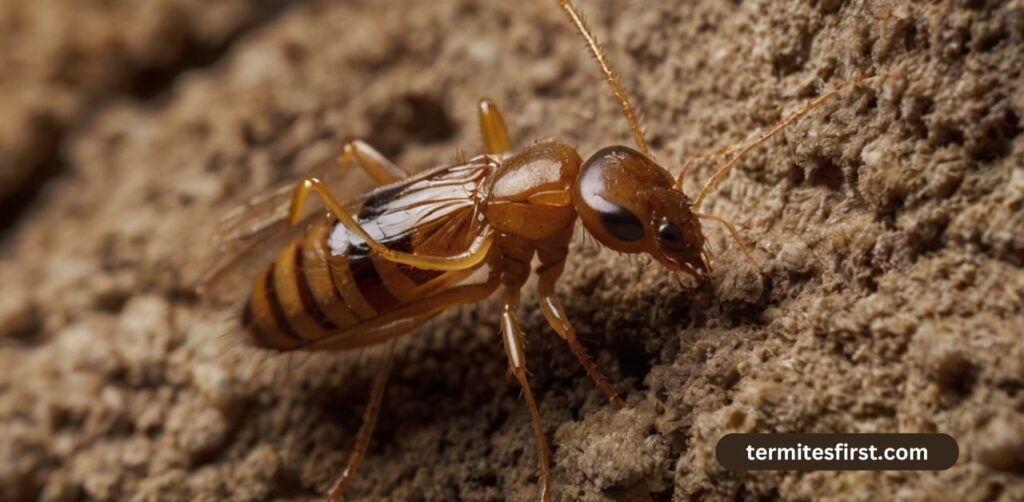
Bait systems offer effective long-term control, with research demonstrating 90-100% effectiveness over ten years. Together, these properties lead to an added benefit of being more environmentally friendly than chemical treatments. Frequent inspection of bait stations is important so they can continue to protect your home.
3. Heat Treatments
Heat treatments are another innovative method, exterminating termites by raising the temperature. The process includes heating the entire structure, or sections of it, to a temperature that is deadly to termites—usually at least 120°F to 140°F. This approach is chemical-free and less disruptive, with most treatments allowing homeowners to stay in their homes while treatments are performed.
When it is done, it takes specialized equipment and expertise to make it truly effective, underscoring the need for professional involvement.
4. Fumigation
Fumigation, usually a last resort for extreme infestations, provides a complete housewide fix. This approach uses an effective gas to flood the entire structure, eliminating hidden colonies by penetrating deep within surfaces and structures. As safety is of utmost concern, this method requires homeowners to leave their homes for several days.
As invasive as it is, fumigation is the most effective treatment in guaranteeing that no termite will be left behind.
5. Biological Control
Biological control methods represent an environmentally friendly option, employing natural predators or parasites to control termite populations. These approaches show potential in augmenting other treatments.
Investigation into regionally available biological alternatives can provide more sustainable options while appealing to contemporary ecological sensibilities.
Importance of Termite Inspections
Whether you’re a homeowner or a prospective buyer, termite inspections are critical to ensuring your home is protected from these destructive pests. Regular termite inspections are the best defense against termite invasions. By committing to these inspections, homeowners will be able to detect the first signs of termite activity, preventing any extensive damage.
Termites are sneaky creatures, and you can’t know for sure whether they’ve infested your home without an expert eye. Preventing a termite invasion through an inspection ensures you catch these pests before they cause damage and gives you peace of mind. Just imagine the security and peace of mind that comes with knowing your home is termite-free.
We hope homeowners will make inspections a regular priority, making them part of their home’s regular maintenance schedule.
Early Detection Benefits
By identifying termites early on, termite inspections protect homeowners from costly damage. When termites are detected early, you can avoid the expense of repairing irreversible damage. This forward-thinking method protects the value of the property by ensuring that infestations don’t increase unchecked.
In Houston, where the climate is conducive to termites thriving, staying aware is especially crucial. A colony of termites could eat a pound of wood in a single day. If not controlled, their voracious appetite can threaten the structural integrity of a structure.
It’s important for homeowners to do something right away if they notice any signs of termites. Waiting a few years in between inspections may allow these destructive pests the opportunity to severely compromise your home’s foundation.
Inspection Process Overview
Usually, qualified inspectors will inspect areas such as the crawl space, attic, and other critical areas of the house that are susceptible to infestation. These professionals are trained to identify even the most subtle signs of infestation, ensuring their evaluations are thorough and precise.
The home inspection report is our best tool, giving prospective homeowners a complete picture on the condition of the property they’re buying. These inspections are relatively quick, taking as few as one hour to complete, particularly when performed by a contractor.
Even if you’re sure your home is in great shape, you still need termite inspections every year. In fact, these inspections may be mandatory for certain mortgages, such as FHA and VA loans.
Frequency of Inspections
Annual termite inspections are the best way to keep your home protected year-round from these wood-eating invaders. Considerations such as past infestations may require more regular inspections, as these homes are at an increased risk.
Seasonal inspections, especially in warmer months, are helpful too, as termites are more active during these times. In a fast-growing, dynamic city like Houston, taking proactive steps to prevent such destruction is an essential ingredient to sustainable homeownership.
Making regular inspections a regular part of every homeowner’s maintenance schedule is important. Avoid costly destruction through regular termite inspections, which can run into the thousands of dollars if allowed to persist.
By taking a proactive approach, homeowners can adequately protect their long-term investments while ensuring the stability and quality of their homes.
Prevention Strategies for Homeowners
When it comes to protecting your home from termites, prevention is the best approach for Houston homeowners. Engaging with knowledgeable termite control experts can help you take preventive action now to avoid costly repair bills. This proactive strategy will safeguard your property’s value from being negatively impacted by future termite infestations.
Reducing Moisture Levels
Because termites love a moist environment, controlling moisture is the first key step in prevention. Prevention strategies for homeowners begin with addressing anything that’s prone to leak—like your roof, your plumbing, and yes, even your yard.
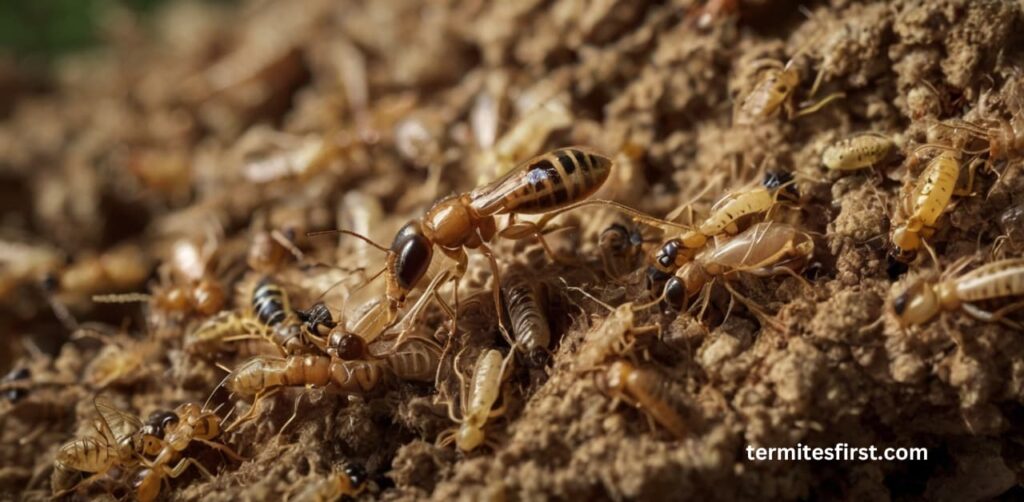
It’s important to have good drainage that will keep water from pooling up around your home’s foundation. Creating an effective drainage system by installing gutters can help divert rainwater from your home and make a huge difference.
Ventilation is important, too. If crawl spaces and attics are properly ventilated, humidity can drop by nearly half. Keep indoor humidity below 50 percent by checking with a hygrometer. Keep it under 60% to discourage moisture-loving pests.
Sealing Entry Points
A second proactive measure you can take is sealing potential entry points. Do a walkaround of your home every so often to check for cracks and gaps, particularly at the home’s foundation and exterior walls.
Remember, even the smallest openings can allow termites entry. Make sure to seal up all doors and windows, adding weather stripping and door sweeps where appropriate.
Screens and barriers are great at keeping bad guys, not just termites, out. Always be aware of utility lines and vent stacks. If they are not well sealed, these spaces can become invisible access points for termites.
Regular Maintenance Tips
Routine maintenance is your best defense against termites. Develop a calendar of home maintenance tasks, starting with annual termite inspections.
These inspections help expose threats early, before they develop into expensive liabilities. Termites are attracted to firewood, mulch, and debris, so keep these away from the home.
Wooden structures such as decks and fences should be inspected each year to look for signs of damage or decay. Knowing what pest control experts in your area recommend will help you make sure you’re taking the right steps.
For the best termite prevention, look into our Sentricon Termite Colony Elimination System. Leave the installation to Certified Sentricon Specialists at Modern Pest Control! Those are the strategies that protect your home against the expensive damages termites can create.
Costs of Termite Treatment Services
One of the most serious financial consequences of termite infestations paid by homeowners is the cost of repairs. In Houston, termite treatment services average about $240 for treating subterranean and Formosan termites. When drywood or Formosan termites are involved, which are more serious varieties, the cost can jump up to $6,250.
Repairing existing termite damage can further add to the costs. Homeowners need to prepare for pest control costs so they’re not caught off guard. Termites are a year-round pest in the state of Texas. In fact, homes have a 70 percent likelihood of being attacked at some point. Given this magnitude, it’s critical to be ready for treatment costs.
Factors Influencing Costs
There are many aspects that play into the costs of termite treatment services. The treatment method you choose will have a big impact on the total cost. For example, the cost of tenting a house in Texas is $0.96 to $2.90 per square foot.
Tentless treatments can cost between $2.90 and $15.40 per linear foot. The size and location of the property greatly influence the cost of treatment. Larger homes have higher costs because they have more area to cover.
When weighing treatment options, it’s important to look at long-term savings. Some termite treatment methods, although costing more initially, could provide more effective, longer-term protection to save you on re-treatment costs.
Average Cost Estimates in Houston
In Houston, termite treatment costs differ depending on the approach taken. Homeowners’ unique situations are what really sway these averages. The average one-time visit cost for termite control services ranges from $50 to $2,000.
The total price will vary based on the extent of the infestation and what approach you decide to use. Across the nation, tentless treatments run $3-$16 per linear foot, which is right in line with Houston’s pricing.
Homeowners need to watch out for additional expenses from inspections and follow-up treatments. These costs can add a big chunk to the overall bill. To make sure they get the best value, homeowners should request several quotes so they can compare.
Comparing Treatment Options by Cost
| Treatment Method | Cost Range | Effectiveness | Duration | Side Effects |
| Tenting | $0.96-$2.90/sq.ft | High | Long-term | Possible property disruption |
| Tentless | $2.90-$15.40/linear ft | Moderate to high | Medium-term | Minimal disruption |
| Chemical | $240-$6,250 | Varies | Short to long-term | Environmental considerations |
Each termite treatment strategy comes along with unique benefits and drawbacks. While tenting is usually the most effective option, it can be significantly more damaging to the environment.
By comparison, tentless methods are unmatched in effectiveness and overall disruption. Chemical treatments are incredibly variable in their short-term effectiveness, cost, and duration of effectiveness.
Homeowners should weigh these factors carefully, considering both the immediate costs and long-term benefits of each method to make informed decisions.
Choosing a Professional Termite Service
If you’re trying to decide which professional termite service to hire, here’s what to look for. First, all consumers need to do a better job researching local pest control companies. Since I happen to live in Houston, I know that termite problems are all too common here.
It’s important to determine which companies have stuck around in your new area. It’s more than just being there. We must learn from the unique battle of Houston’s high termite density, where 3 in 4 homes are already damaged.
The best way to determine the quality of service a company provides is by hearing about the experiences of past customers. Consistent, high reviews — like many five-star reviews — are a good sign that you’re dealing with a trustworthy service provider.
ABC, a company famous for its termite warranty, has been wildly successful. Customers are ecstatic about its successful installation of Sentricon system from The Terminix Commercial, the premier name in termite protection. Beyond this one example is an immense body of research supporting this system as the best way to kill entire termite colonies.
It’s very widely used, with almost five million active structures. Asking for referrals from those you know can help lead you to a reliable termite service. Recommendations from people you know carry the weight of firsthand experience, offering peace of mind as you make your choice.
What to Look For in a Service
While you’re making your choice for a termite control service, a checklist of the most important qualities can come in handy. Experience and expertise in termite management are first on this list. A company with experienced professionals will be more equipped to deal with the unique needs of your property.
Transparent, upfront pricing and open communication go a long way. In my opinion, having some idea of what the financial investment will be and how they will deliver service is going to create credibility and trust. Plus, it makes sense to select services that provide warranties or guarantees.
Having these types of assurances can offer great peace of mind, knowing that the company will be accountable to you for their work. If you’re constructing a new home, make the right choice and use Termimesh. This metal screen has already been proven 100% effective against termites, making it a proactive option.
Questions to Ask Providers
Knowing what type of treatment they’ll apply, and what results to expect is very important. Inquiring about the tools and strategies involved, including the use of the Sentricon system, can go a long way in clearing up what the service includes.
For instance, you’ll want to ask about service contracts, renewal terms, and any extra fees. Safety practices and environmental stewardship should be included in the discussion. Choosing a safe, eco-friendly approach means protecting your home in the long run.
It protects not only your home but the environment.
Importance of Licenses and Certifications
Choosing licensed and certified pest control professionals is a must. Licenses guarantee that a company is up to date with new local laws and safety regulations. Experienced certified technicians, trained through intense programs, create a well-oiled machine of expertise and reliability.
Before I choose a service I always check credentials, because this final step ensures that I’m working with true experts in the field.
Conclusion
Termite treatment Houston demands a strategic plan of action. Knowing the different types of termites, available treatments, and the importance of routine inspections can help keep your home safe from these destructive pests. Educating yourself about prevention is key to saving thousands on costly damages. When you select the right professional service, you can count on having termites controlled in the best way.
Along with the adventure, you get expertise and reassurance. Don’t just protect your home—protect your smart investment. Don’t delay until you see signs of damage. Act now and choose wisely.
For more in-depth instructions and suggestions, visit our resources. Be proactive, be protected. Your home surely deserves nothing less.
Frequently Asked Questions
Termites are destructive wood-eating insects that can lead to significant property damage. Engaging with knowledgeable termite control experts for early detection is crucial to prevent extensive repairs from unchecked termite infestations.
The main types of treatments available include liquid soil-applied termiticides, termite bait systems, and termiticide-treated building materials, all designed by knowledgeable termite control experts to effectively address pest infestations.
Regular inspections by pest control experts are the best line of defense against termites. It’s much easier to treat a termite infestation before it causes extensive damage and demands costly repairs.
To prevent termites and other household pests, it’s essential to seal entry points, keep wood away from the soil, and schedule regular inspections with pest control experts.
Cost for pest control services will depend on the method of treatment, extent of the pest problem, and size of the property. On average, expect to pay between $500 and $2,500 nationwide.
Only consider licensed and insured pest control experts, and check for online reviews, testimonials, and complaints. Inquire about their experience, type of pest control service, and guarantees. A reliable professional service will provide you with a complete inspection and a personalized treatment plan.


